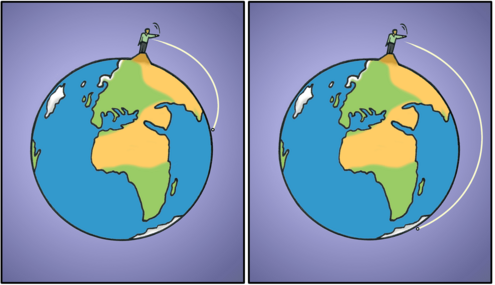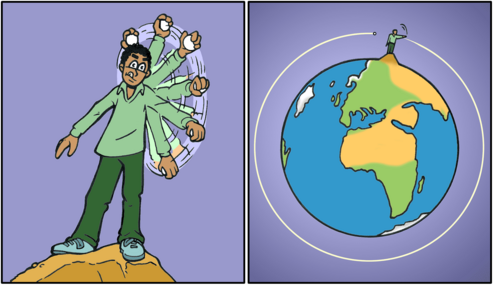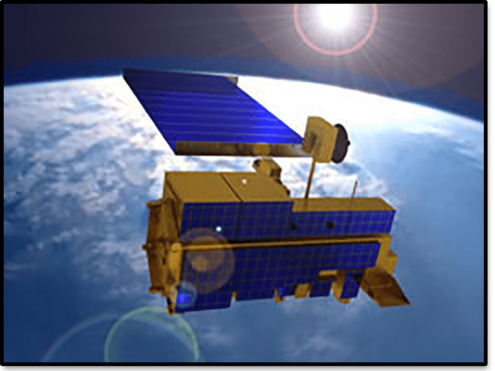Newton's Ball
Have you ever wondered how satellites in the sky stay in orbit? Before there were satellites, Newton asked himself the same thing about objects such as the moon:

Get your brain on the ball and explore Newton's question with the thought experiment below:
Question: Can you throw a ball so hard that it never falls to Earth?

Example: Imagine you are on a mountain and throw a ball in front of you.
Logic: Think about what happens if you throw a ball softly. It goes a bit and then falls to the ground. If you throw the ball harder, it will go farther before it hits the ground, right?

Prediction: If you throw the ball hard enough, it will never hit the ground and continue to follow a stable path around the earth. This path is called an orbit. (If something is going a certain speed around Earth, it will stay in orbit around the Earth .)

Conclusion: By combining his theory of gravity with his theory of motion, Newton came up with a formula that showed how fast an object has to go to stay in orbit. He was right! Today, scientists use his formula to put satellites in orbit.
Who said science couldn't be a ball?
Image Credits:
Photos: satellite: courtesy of NASA; Illustrations: Newton's Ball and Light Speed: Eric Hamilton




 Biodiversity
Biodiversity
 Brain
Brain
 Genetics
Genetics
 Marine BiOLogy
Marine BiOLogy
 MicrobiOLogy
MicrobiOLogy
 PaleontOLogy
PaleontOLogy
 ZoOLogy
ZoOLogy
 AnthropOLogy
AnthropOLogy
 ArchaeOLogy
ArchaeOLogy
 Astronomy
Astronomy
 Climate Change
Climate Change
 Earth
Earth
 Physics
Physics
 Water
Water
